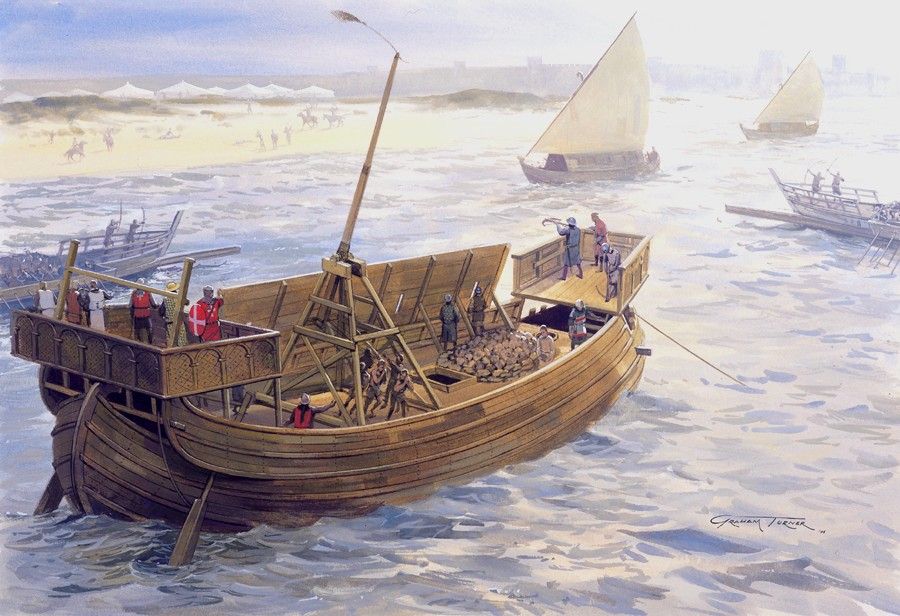
Andrew's Crusade
Acre, IsraelIn July 1216, the newly elected Pope Honorius III once again called upon Andrew to fulfill his father's vow to lead a crusade. Andrew, who had postponed the crusade at least three times (in 1201, 1209 and 1213), finally agreed. Steven Runciman, Tibor Almási and other modern historians say that Andrew hoped that his decision would increase his likelihood of being elected as Latin Emperor of Constantinople, because his wife's uncle, Emperor Henry, had died in June. According to a letter written by Pope Honorius in 1217, envoys from the Latin Empire had actually informed Andrew that they planned to elect either him or his father-in-law, Peter of Courtenay, as emperor. Nonetheless, the barons of the Latin Empire elected Peter of Courtenay in the summer of 1216.
Andrew sold and mortgaged royal estates to finance his campaign, which became part of the Fifth Crusade. He renounced his claim to Zadar in favor of the Republic of Venice so that he could secure shipping for his army. He entrusted Hungary to Archbishop John of Esztergom, and entrusted Croatia and Dalmatia to Pontius de Cruce, the Templar prior of Vrana. In July 1217, Andrew departed from Zagreb, accompanied by Dukes Leopold VI of Austria and Otto I of Merania. His army was so large—at least 10,000 mounted soldiers and uncountable infantrymen—that most of it stayed behind when Andrew and his men embarked in Split two months later. The ships transported them to Acre, where they landed in October.
